[Editorial] Confronting Grief Through Hereditary and Midsommar
There is no denying that when Ari Aster’s film Midsommar was released, there seemed to be a consistent consensus regarding the one emotion that drives the imaginings of the horror he creates; grief.
I’ve often thought that it’s very easy to portray most emotions in film such as fright, disgust, love, excitement, pride and so forth, yet it seems that grief is an emotion not so easily conveyed unless your surname happens to be Aster. His directorial debut Hereditary was a film that really resonated with me on many levels that were so personal, it almost felt like a personal intrusion on the emotions that I had always hidden as deeply as possible. When entering into Midsommar, I knew that this was a film that was about to force my consciousness to delve into the one emotion that for so long has been a source of anticipation and severe anxiety.
Grief is the one emotion that I have consistently avoided for the last ten years of my life, constantly trying to run away from the reality that grief is something that never truly leaves you, it follows you like a demonic entity on the path of revenge; it is relentless, it is consuming and it is forever a source of pain in your life. Even though I’m typically a happy woman with nothing to complain about, there is a source of inner disruption, now being carefully handled with my therapist (an act of self-care which I highly recommend to everyone), that unfortunately will last a lifetime and continue to haunt me until my final days. But what was it that made me run a thousand miles without even shedding a single tear before confronting this emotion? The loss of my mother.
This is the sole reason that films which deal with grief are one of the most difficult to watch and experience. The death of my mother was never unexpected, it was on the cards for a considerable amount of time; diagnosed with an aggressive form of breast cancer with no hopes to beat it from the get go. When she was first diagnosed I was 17 years old with a perfect family, future and everything an ambitious young woman would need in her life. I distinctly remember returning home from a weekend away camping, only to return to two anxiety driven parents who were unreasonably distressed because there was a chance I could have germs on me. It was this moment where they had to explain to me about the dominating cancer that was now the fifth member of our picturesque nuclear family. That was a pinnacle moment in my life and one that defined the course of my future and myself. It wasn’t until the day I got the call from my father that my mother had gone that I truly recognised what that meant for everything. How can you begin to comprehend the emotions that will come when you lose your mother at 18? There’s no way you can prepare yourself for something that monstrous.
The following months were consumed by grief, a black hole of nothingness that swallows you into its throat, but never fully digests you, leaving you to drown slowly and painfully in the acidic waves that it has created personally for you. You’re often told during awkward meetings after someone close dies that grief is a fleeting emotion, and that with time it will disappear and although you will miss that person forever, you won’t feel the way you do forever. That is a cruel lie. Grief is an underlying tone that stays with you forever; it may not be there everyday but it will be there ten years later when you remember a private joke between yourself and the deceased and there is no one in the world that you can mention it to. That wave of grief suddenly washes back over you, with small anchors made from loneliness, pain and emptiness instead of iron. It is those feelings that I have been trying to escape from for the last ten years since my mother departed this world, because I’m not someone who confronts emotions well, I’m someone who finds it much easier to bury them within the dark pit of my stomach and make inappropriate your mum jokes rather than admitting to someone that it still hurts. Which is the exact reason why when watching Hereditary there were so many untouched emotions that I hadn’t previously been able to confront and deal with.
Hereditary is a horror film at its core, but it’s also a film that deals with how families cope, or more likely, don’t cope with a significant loss. How every relationship that’s been built up over the years can suddenly deteriorate within a matter of moments; with blame being thrown about, anger used as a metaphorical fist and confusion overruling every sane decision made. It makes the audience member look at themselves and understand how they have reacted to grief in the past or how they would react to grief, which is no easy task to ask the audience to do. Grief often makes people do things they wouldn’t normally do, entering a state of consciousness that no longer seems to be controlled by the owner of that body, but more a separate entity that has a rage directed at the world and everyone that resides within it. Although grief is one emotion in itself, it seems to be a parent category for a few stages that come within it, something that is perfectly represented within The Haunting of Hill House. Even though I believe these stages are a continuous state and cycle for someone who has gone through a devastating loss, it does help to recognise and represent how grief is not a linear process, nor is it something that can be defined by one word. It’s a complicated feeling that gnaws away at your very being until you become nothing but a shell of your former self, which is exactly why so many of us lock it away in treasure chests rather than confronting it.
Confronting that emotion through the watching of Hereditary was something that I hadn’t prepared for… I never expected to have to mentally and psychically drag up my depressing past to get through and understand a film, but that’s exactly what happened. It would be difficult to say that it was a happy experience, but sometimes it’s beneficial to go through such a process, no matter how painful and unexpected it can be. The hurt within my being lasted for what felt like an eternity, yet it was some way of beginning to deal with something personal that I’d never faced head on before. Through witnessing grief on screen and the heart-breaking loss shown in Hereditary, there was an element of catharsis and understanding. That is why when first going into Midsommar, there was a lot of apprehension as I knew not only that it was another film that dealt with grief, but one that alongside deals with heartbreak and relationship breakdown. Venturing into this film was absolutely terrifying due to the potential emotion response it would awaken, however at the same time there was a sense of relief knowing that I would be able to yet again have another outlet to reflect and examine those emotions that I tiresomely keep so hidden from the rest of the world.
Midsommar deals with one of the most harrowing opening sequences in which Dani’s family are obliterated within a matter of minutes at the hands of her sister, leaving her without any familial ties that help to keep her grounded. Aster represents grief incredibly well within this film; there is a scene in which Dani seems to be doing okay to the outside world, however, deep inside she is drowning within her own emotions. She steps inside the bathroom to be alone, and grief oppresses her within a second, completely consuming her and crumbling the world around her. This representation on screen conjured memories for me of times when I would simply smile and laugh, and proceed to excuse myself in order to allow grief to privately dominate my existence. Both Midsommar and Hereditary are films that force us as humans to confront our emotions and tackle them head on, without giving much room to breathe along the way. It is easy to see why both of these films provoke such a varying response from the audience; they deal with such personal emotions that every viewer will have a wildly different experience to the next, but that is what makes Aster’s films so powerful and thought-provoking.
Sometimes we find ourselves running and running until we believe we’re clear of our source of pain and anguish, however our emotions will always be tethered to us and cannot be outrun. Which is why it is often a cathartic experience confronting those emotions, and allowing them to drown us for a brief matter of time in a controlled environment, before resurfacing with a sense of relief and understanding that those emotions are part of our DNA. Horror cinema time and time again represents the audience with a look at difficult emotions, and in the case of Ari Aster’s works he focuses on the emotion of grief, and forcing the audience to come face-to-face with the mournful monster. Film allows the audience to find a form of escapism into a faux world that holds an element of control when it comes to our emotions; it may provoke us, however, this is a proactive and composed way of dealing with internal feelings and facing them without having to explain why we feel a certain way.


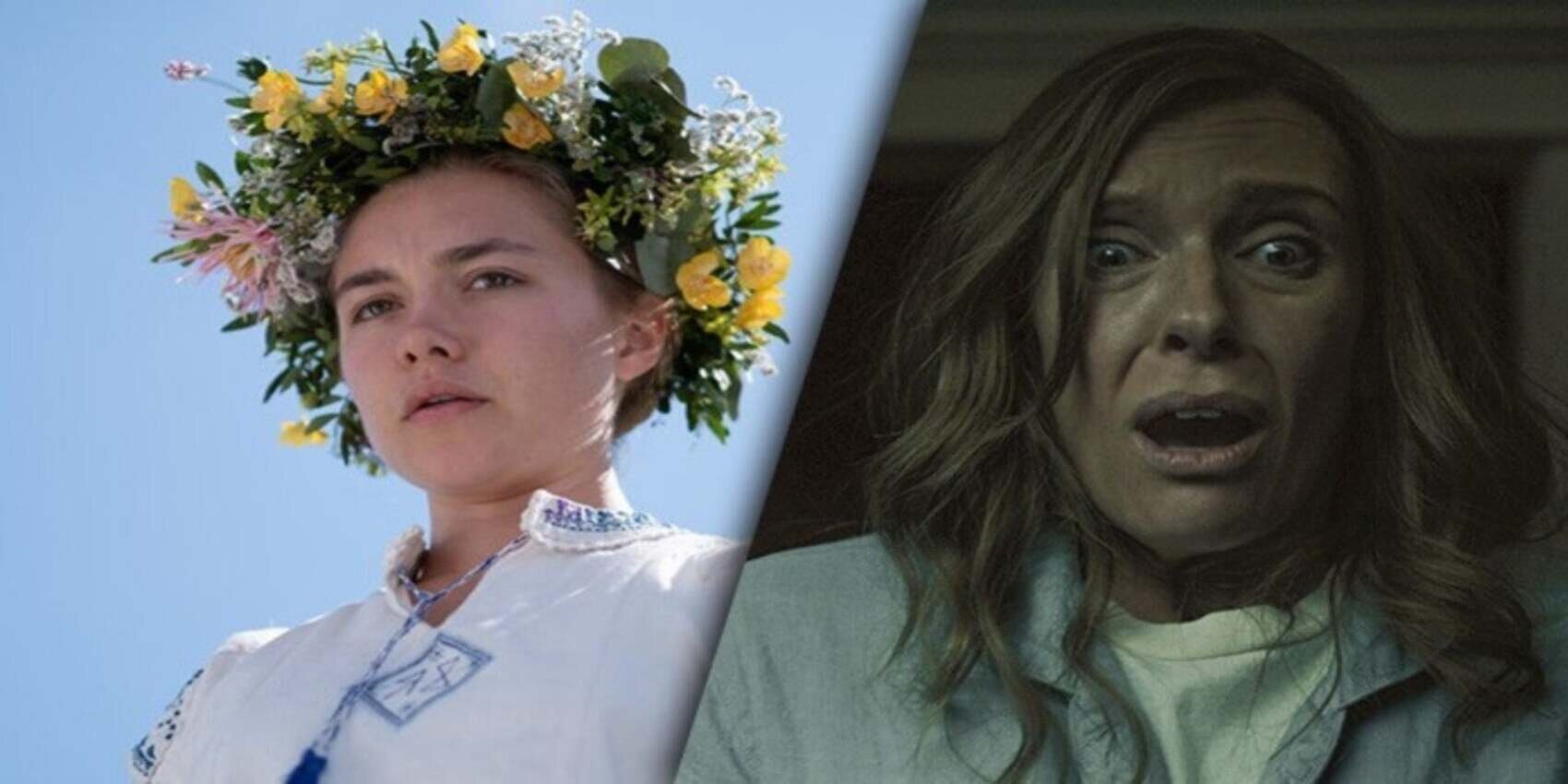
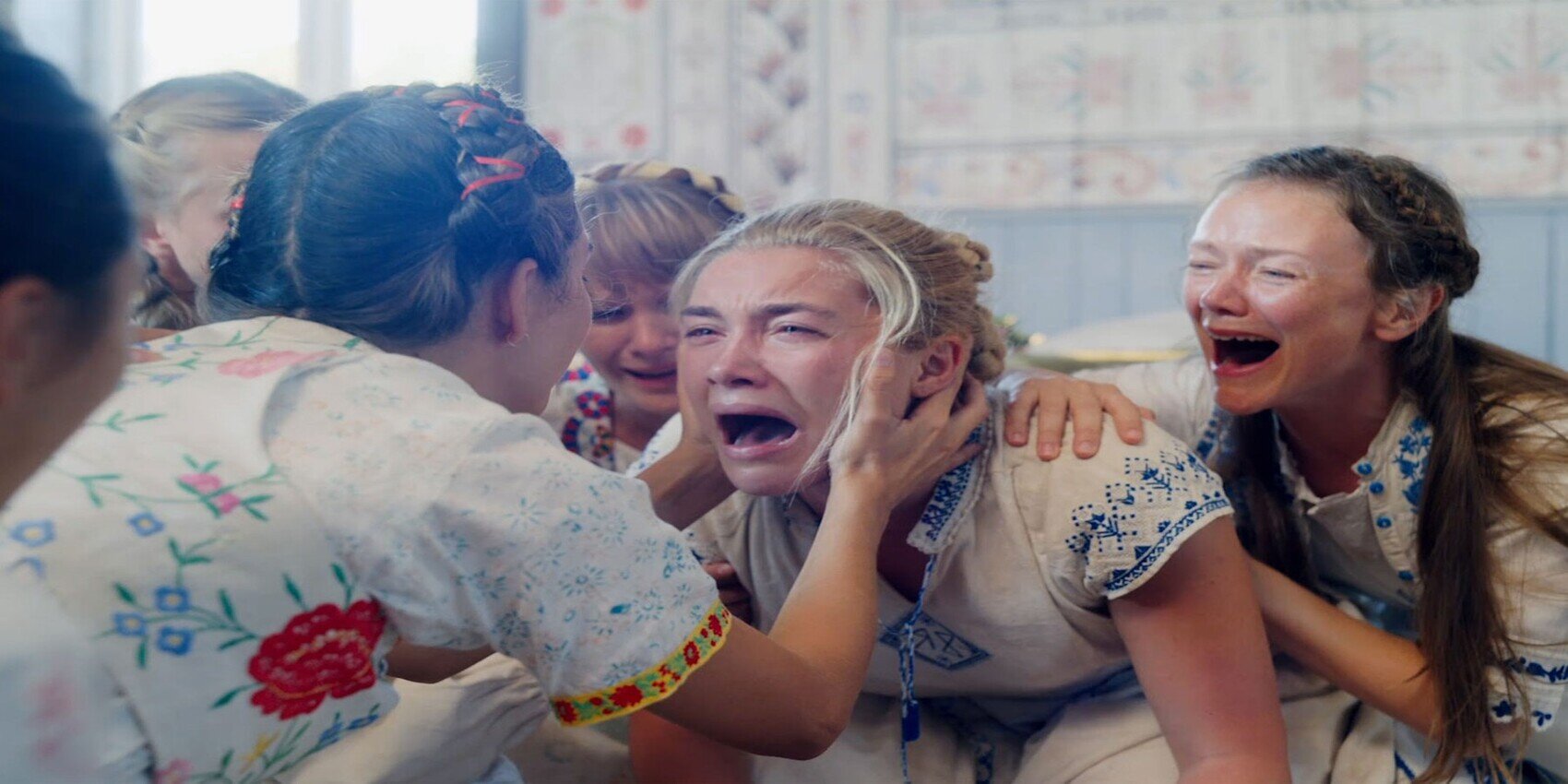
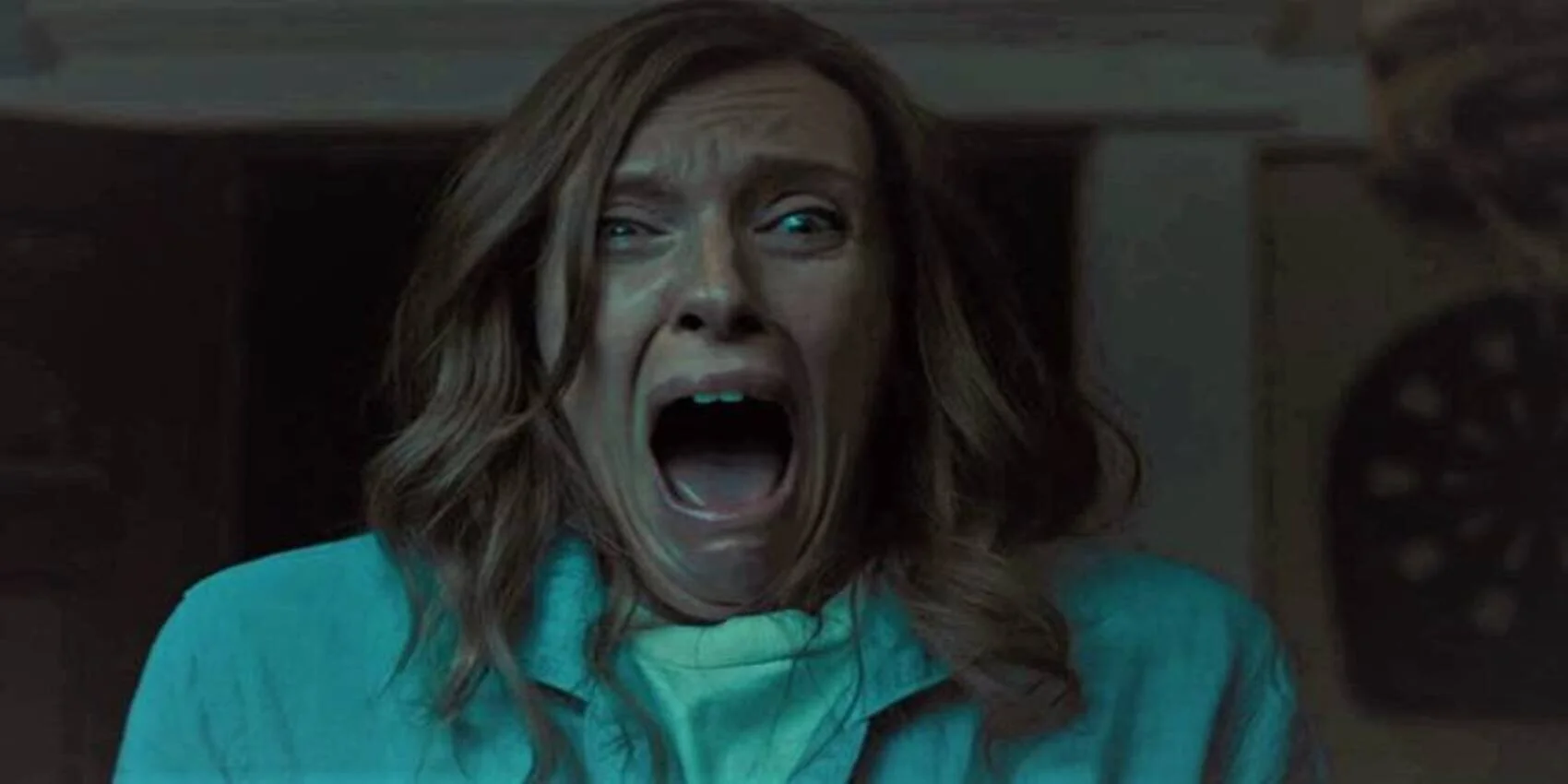
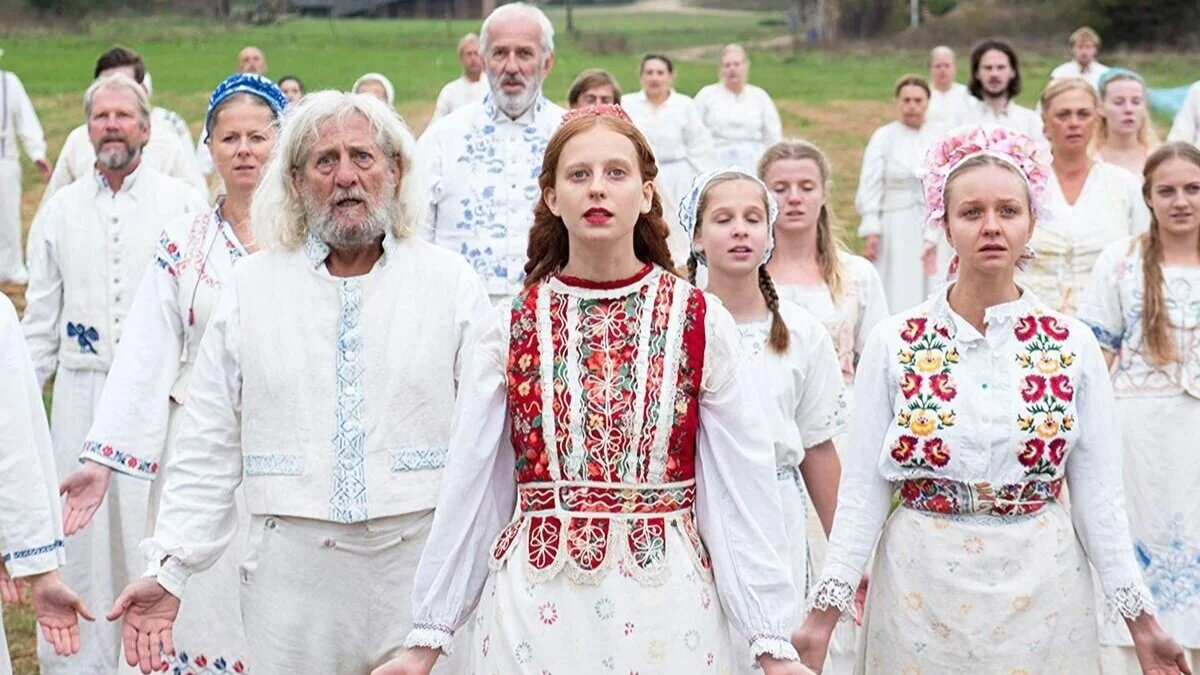
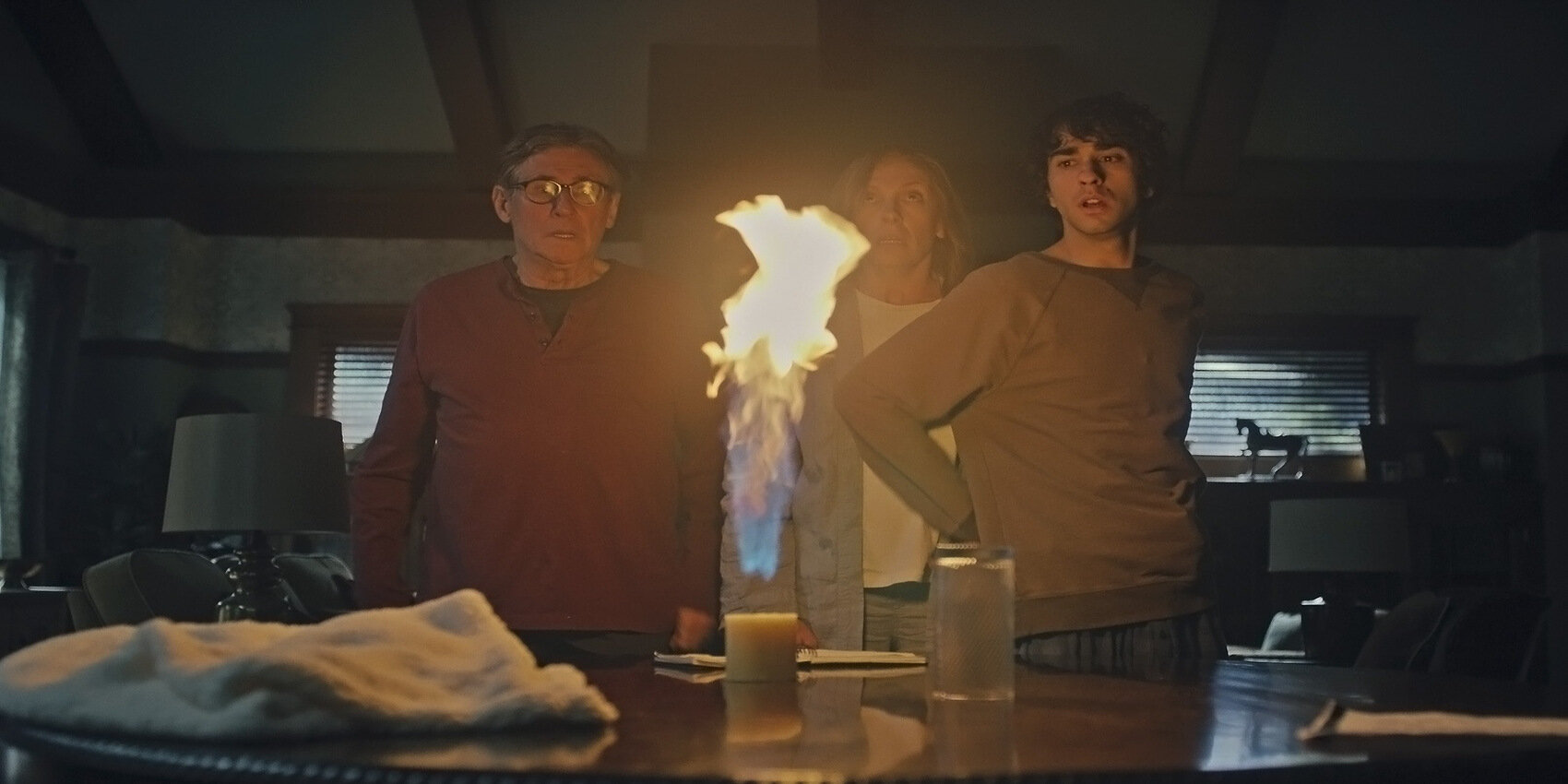
![[Editorial] 5 Slasher Short Horror Films](https://images.squarespace-cdn.com/content/v1/5fe76a518d20536a3fbd7246/1696358009946-N8MEV989O1PAHUYYMAWK/Screenshot+2023-10-03+at+19.33.19.png)
![[Ghouls Podcast] Maniac (2012) with Zoë Rose Smith and Iona Smith](https://images.squarespace-cdn.com/content/v1/5fe76a518d20536a3fbd7246/1696356006789-NYTG9N3IXCW9ZTIJPLX2/maniac.jpg)
![[Editorial] If Looks Could Kill: Tom Savini’s Practical Effects in Maniac (1980)](https://images.squarespace-cdn.com/content/v1/5fe76a518d20536a3fbd7246/1694952175495-WTKWRE3TYDARDJCJBO9V/Screenshot+2023-09-17+at+12.57.55.png)
![[Editorial] Deeper Cuts: 13 Non-Typical Slashers](https://images.squarespace-cdn.com/content/v1/5fe76a518d20536a3fbd7246/1694951568990-C37K3Z3TZ5SZFIF7GCGY/Curtains-1983-Lesleh-Donaldson.jpg)
![[Editorial] Editor’s Note: Making a slash back into September](https://images.squarespace-cdn.com/content/v1/5fe76a518d20536a3fbd7246/1694354202849-UZE538XIF4KW0KHCNTWS/MV5BMTk0NTk2Mzg1Ml5BMl5BanBnXkFtZTcwMDU2NTA4Nw%40%40._V1_.jpg)
![[Editorial] 8 Mind Horror Short films](https://images.squarespace-cdn.com/content/v1/5fe76a518d20536a3fbd7246/1693504844681-VPU4QKVYC159AA81EPOW/Screenshot+2023-08-31+at+19.00.36.png)
![[Editorial] Eat Shit and Die: Watching The Human Centipede (2009) in Post-Roe America ](https://images.squarespace-cdn.com/content/v1/5fe76a518d20536a3fbd7246/1691245606758-4W9NZWE9VZPRV697KH5U/human_centipede_first_sequence.original.jpg)
![[Editorial] Top 15 Female-Focused Mind Horror Films](https://images.squarespace-cdn.com/content/v1/5fe76a518d20536a3fbd7246/1691247166903-S47IBEG7M69QXXGDCJBO/Image+5.jpg)
![[Editorial] 8 Body Horror Short films](https://images.squarespace-cdn.com/content/v1/5fe76a518d20536a3fbd7246/1690838270920-HWA5RSA57QYXJ5Y8RT2X/Screenshot+2023-07-31+at+22.16.28.png)













I can sometimes go months without having a panic attack. Unfortunately, this means that when they do happen, they often feel like they come out of nowhere. They can come on so fast and hard it’s like being hit by a bus, my breath escapes my body, and I can’t get it back.